interviewed by Carl Slaughter
CARL SLAUGHTER: Common misconceptions aspiring writers have about crafting a marketable story and how to deliver ourselves from those misconceptions?
MICHAEL SWANWICK: The idea that there’s some kind of secret handshake involved in getting published. The idea that you have to trick an editor into buying your story. The idea that if you write in imitation of some successful writer’s work, his or her fans will flock to you. The idea that there’s a new movement or school you can hop aboard like a train that will take you straight to the top.
You deliver yourself from these by writing something good enough that an editor buys it and publishes it. When the book or magazine finally comes out and you hold that glorious, professionally edited and printed item in your hands, you will realize that you earned this moments. No tricks, no stunts, no politics. Just good writing. By you. That’s a terrific feeling.
Common manuscript mistakes aspiring writers make and how to recognize and correct these mistakes?
The very commonest is to open a story by “setting the scene” or “establishing mood” or giving background information that the reader is expected to memorize in order to understand the story to come. On those rare occasions I teach writing, I begin by going over the student submission stories and crossing out everything that should be cut before the story actually begins. Finally, on page two or five or eight, I’ll draw a line and write: START HERE.
This can be prevented by making sure you start at the beginning of the action. Or, better yet, in media res.
The least obvious common mistake, however, is not making sure your first and last pages are compelling and crisply written. I’ve watched editors reading slush back in the days when the slush pile was a physical heap of paper, and they would read the first page of a typescript and then flip to the last page. On the basis of that cursory glimpse, they would then put almost every submission in the reject pile and one or two stories aside to be read all the way through. “When I was starting out, I thought that was terrible and swore I’d read every story from beginning to end,” an editor told me once. “But I found out fast that you only need to read the opening and closing to know if there’s any chance the story will be good.”
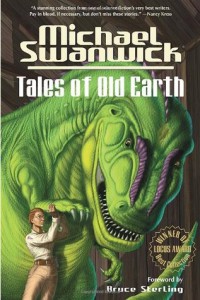 Is there such a thing as style rules (see below) or is that conventional wisdom / dogmatism? Shouldn’t the story determine the style rather than vice versa? “Yeah, but famous author X breaks the rules all the time and the editors don’t challenge him on it.”
Is there such a thing as style rules (see below) or is that conventional wisdom / dogmatism? Shouldn’t the story determine the style rather than vice versa? “Yeah, but famous author X breaks the rules all the time and the editors don’t challenge him on it.”
(Is show inherently better than tell, is activity inherently better than dialog? Are activity and dialog inherently better than narrative, are first, second, or third person inherently better than the other two? Is changing the POV in the middle of the sentence inherently confusing? Do you have to open with the most dramatic scene and then rewind? Do you have to list the contents of a room or describe a character’s physique or clothing? Does the story have to be organized like a 3 act play? Are dream sequences and info dumps inherently weak tools?)
Write as best you can and as simply as you can. That is the whole of the law. Sometimes a story can only be told in an extremely ornate or flashy manner. In those cases, it should be told in as simple an extremely ornate or flashy manner as possible.
Editors will let you get away with anything you can make work. When they challenge you on matters of style, they’re saying that you haven’t made it work and that the style is getting in the way of the reader’s comprehension.
Addressing your examples: Showing is usually better than telling, but not always. Action is usually better but dialog reads faster, so you can use the distinction to speed up or slow down the story as needed. Narrative can work brilliantly but if it’s just synoptic, it’s going to be boring. Third person past tense is what readers are most comfortable with, so you should only move away from it when you have a compelling reason to do so. In short fiction, you should have only one point of view, unless you have a compelling reason for more. The only POV shifts within a single sentence I can recall reading were in Finnegan’s Wake, which is not an easy book to read but one that rewards the extraordinary investment it asks of the reader. Flashbacks, particularly flashbacks occurring immediately after the opening of a story, are almost always a bad idea. A room or scene can be described in two perfectly-chosen details (in John Cheever’s notebooks, he recounted sitting in a friend’s living room while the man chained smoked and talked about his impending divorce, trying to think of the two details that would pin the scene; he kept looking down at the ashtray, overflowing with cigarette butts, and out the picture window at an achingly blue sky, back and forth from one to the other). Unless the story is about a character’s appearance or clothing, they can be dealt with in three or four details, tops (Marilyn Monroe: blonde, zaftig, a birthmark to one side of her lipsticked mouth). I’ve never used the three act play as a model for any of my fiction. Dreams are only rarely used well in fiction. Info dumps are to be avoided if it can be done efficiently, but sometimes a well-placed info dump saves you three or four pages of dancing about the subject and in those cases it should be embraced.
There is no such thing as one-size-fits-all pantyhose. Almost every rule of thumb has exceptions. But as a rule of thumb, the exceptions are harder to write well.
Use an outline and character profiles or wing it?
Whichever works for you. There are many kinds of writers, some of whom cannot begin writing until they know every twist and turn of the plot and others whose creative processes shut down the instant they know how a story ends, with the vast majority of us existing somewhere in between. The thing is that there is not one single skill which we can call “writing”; there’s a large family of related skills which result in superficially similar end-products. What works for one writer will stop another one dead.
Strategies for plotting 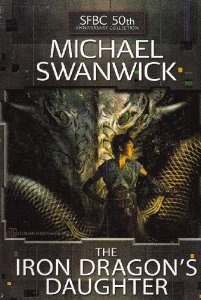 and developing characters and reinforcing themes?
and developing characters and reinforcing themes?
I can honestly say that I’ve never given a moment’s thought to themes, much less reinforcing them. Here’s an insight into plotting, though: As a general rule, a story requires at least three characters. With only two, the conflict ends with the protagonist either winning or losing. As fiction, this is about as interesting as tug-of-war. With two other characters pulling her in different directions, however, she ends up being pulled in a new and, one hopes, interesting direction.
Some writers base characters on real people and those times I’ve done this, it worked well. Mostly, I hold up my characters against real people to see if they’re complex enough. When I was writing The Iron Dragon’s Daughter, I taped a picture of the Sex Pistols to my monitor as a reminder that the monsters in my book should be at least as scary as them.
To revise or not to revise, that is the question.
There comes a moment when putting more work into the story just makes it worse. Stop just before you reach that point.
To workshop or not to workshop, that is the question.
Pretty much all unpublished writers workshop their fiction, so there’s no point to arguing against it. At the very least, it provides reassurance that you really are a writer and that you really are doing something to make progress at a time in your career when you need those reassurances most.
Keep in mind, though, that a workshop is only as good as its component members. That not all advice is good. That over time workshops tend to impose a house style on their participants. That they favor those who write quickly and in a conventional voice over those who are painstaking and quirkily original. That if their advice doesn’t make your story any better, the problem may not necessarily lie in you.
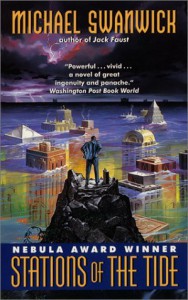
To agent or not to agent, that is the question.
When you have a completed novel that has a chance of being published, you need a good agent. For some reason, publishing houses keep putting unreasonable clauses in their contracts which an agent knows how to remove. (But don’t count on your agent to have read the contract. Educate yourself, read before signing, and if anything looks puzzling get on the phone right away. Your agent should know if a clause is standard or not.) Also, unagented writers almost invariably get paid less for their work. The exceptions are those who know the industry so well they can do the negotiations on their own.
Notice, however, that I specified that the agent be good. Anyone can be an agent; there is no accrediting agency. And a bad agent can do horrible things to your career. Luckily, agents aren’t interested in taking you on before you’ve got a finished book to offer, so you have time to do research. Use this time wisely.
To self publish or not to self publish, that is the question.
Are you good at marketing? Do you have a business plan? Do you have a clear idea of how you’re going to let people know your work exists? Have you worked out how many units you have to move to move to cover your costs? Are your numbers realistic or just wishful thinking?
Everything depends on your situation. A conventionally published writer with a decent following and enough free time to do it right can put his or her out of print back list to work and earn†� well, not enough to live on, but a pleasant little supplemental income. Somebody who’s really good at the business end, is willing to work hard, and can write at least three novels a year can make a career of it. Somebody who’s been published conventionally and experienced push-back (you only get so many chances before the publishing world gives up on you) can make a comeback attempt by self publishing and sometimes it will work.
Writing is a tough business. Publishing is a tough business. Self publishing is a combination of the two. If you’re going to do it, put in the research before you spend a penny. Writer Beware is a good place to begin.
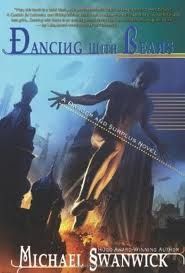 To ebook or not to ebook, that is the question.
To ebook or not to ebook, that is the question.
If you’re self publishing, you pretty much have to go with ebooks. If you’re not, go with whatever deal is best , but make sure the contract includes a clause reverting e-rights when payments to you go below a clearly defined level.
To write fan fiction or not to write fan fiction, that is the question.
When my son was a teenager, he and a friend spent a summer writing a fanfic mashup of two incompatible gaming worlds, and for a year they received more fan letters than I did. So far as I can tell, there was no downside. Except for the part about not getting any money for it and not having a physical book to put on the shelf.
To join the SFWA or not to join, that is the question.
I’ve been a member for over thirty years, so obviously I believe in the value of the organization for the community of genre writers. If you’re expecting individual career benefits rather than the satisfaction of promoting the common good, it’s probably not going to do much for you. The social element, the sense of community, and the SFWA Directory full of addresses for writers you may have cause to contact are all nice. But SFWA’s chief function is to encourage a set of conditions within publishing such that someday you won’t ever need to call upon their help.
Writer Beware is a SFWA site, incidentally, and it’s available free to everyone.
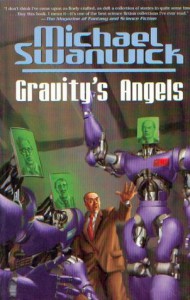 True or false: The system is rigged against the rookie and in favor of the veteran.
True or false: The system is rigged against the rookie and in favor of the veteran.
Not true, and in the case of short fiction extremely false. Most successful writers abandon short fiction after they make a name for themselves and so the magazines are always on the lookout for new writers. Also, editors take pride in the talents they’ve discovered.
Publishers will always prefer a new Stephen King novel over something by a complete unknown. But they also like being able to snap up The Next Stephen King at bargain rates.
True or false: An editor should have enough editorial instinct to recognize an awesome premise based on a synopsis and commission a novel rather than defer judgment until reading the entire manuscript.
Times are changing. For most of my career, I was an oddity because I finished my novels before trying to sell them. Everybody else sold by fragment-and-outline. (The sample chapters were required so the editor could get a sense as to whether you could write commercially viable prose.) More and more now, I hear, editors are willing to look at the fragment-and-outline but requiring a full novel before making a final decision. This has nothing to do with their editorial instincts, and everything to do with in-house policies set by their corporate masters.
An editor asks for a change in the story. It’s a seemingly small change, but it fundamentally alters the story. Stand your ground? Explain your vision for the story and ask the editor to yield? Politely withdraw the manuscript?
Polite is always good. Whether you politely stand your ground, politely ask the editor to yield, or politely withdraw the story depends on your honest opinion of what’s at stake.
First, however, take a deep breath and try to be objective. It’s hard to be reasonable about your own work and God knows, every time I go over a copy-edited novel, I find myself defending every quirk of phrasing and oddly-placed comma with all the emotion of a mother bear defending her cubs. But it’s important to think of the proposed change not as a moral challenge but as a well-intended suggestion that might conceivably improve the story.
Whatever you choose to do, remember that the editor hasn’t requested the change out of malice but from the simple (possibly misplaced) belief that it will improve the story. So play nice. Remember that you may find yourself working with this human being again.
I’ve interviewed more than one author who sold their first novel without getting even one short fiction byline in the magazines. Are they the exception or is this the new order of things?
It’s always been possible, and reasonably common as well, to sell a novel without selling short fiction first. The advantage of making a name in short fiction first is that it creates a following for your fiction and some name recognition for you. But not all writers are good at both lengths. Go with your strength.
 You described Gardner Dozois as a manuscript doctor genius. What exactly did he do to fix a manuscript?
You described Gardner Dozois as a manuscript doctor genius. What exactly did he do to fix a manuscript?
One very small example: When he read the typescript for “The Feast of Saint Janis,” he said to me, “Congratulations, Michael. You’re the first person ever to write a story about rock and roll without once using the word ‘fuck.'” I immediately thought: Oh drat, and rewrote the dialogue.
Gardner has an uncanny ability to spot whatever it is that makes a story not work , whether it’s too wordy, or needs expansion, or requires a new character or rethinking an existing one. What makes him a great story doctor is that in doing so he doesn’t impose his own style or preferences upon the work. He looks at what the story itself wants to be and what you want to accomplish with it, and advises accordingly.
Most importantly, he’s a minimalist. He restricts his advice to those parts of the story that aren’t working. He doesn’t try to improve what’s already functioning.
Early in my career, I wrote the first chapter of a novel that was going to be about a parallel-worlds traveling con man, most of which was taken up by a clever con game I’d invented. Two pages into the second chapter, I decided that I didn’t like the protagonist or the premise and gave up on it, but not before leaving a chapter with Gardner. One day I dropped in on him and said, “What’s new?”
“Wait a second,” he said, and finished typing a page. Then he trued up a typescript, handed it to me, and said, “You’ve just finished a story.” And I had! He’d removed the first and last pages, made the story about time-traveling drug dealers, and changed it from the non-functioning opening of an abandoned novel into a witty and entertaining novelette. All the stuff in the middle was unchanged. “Snow Job” sold to High Times, was reprinted in Asimov’s, and taught me a lot about the extreme malleability of fiction.
 Carl Slaughter is a man of the world. For the last decade, he has traveled the globe as an ESL teacher in 17 countries on 3 continents, collecting souvenir paintings from China, Korea, Thailand, Vietnam, and Egypt, as well as dresses from Egypt, and masks from Kenya, along the way. He spends a ridiculous amount of time and an alarming amount of money in bookstores. He has a large ESL book review website, an exhaustive FAQ about teaching English in China, and a collection of 75 English language newspapers from 15 countries.
Carl Slaughter is a man of the world. For the last decade, he has traveled the globe as an ESL teacher in 17 countries on 3 continents, collecting souvenir paintings from China, Korea, Thailand, Vietnam, and Egypt, as well as dresses from Egypt, and masks from Kenya, along the way. He spends a ridiculous amount of time and an alarming amount of money in bookstores. He has a large ESL book review website, an exhaustive FAQ about teaching English in China, and a collection of 75 English language newspapers from 15 countries.

